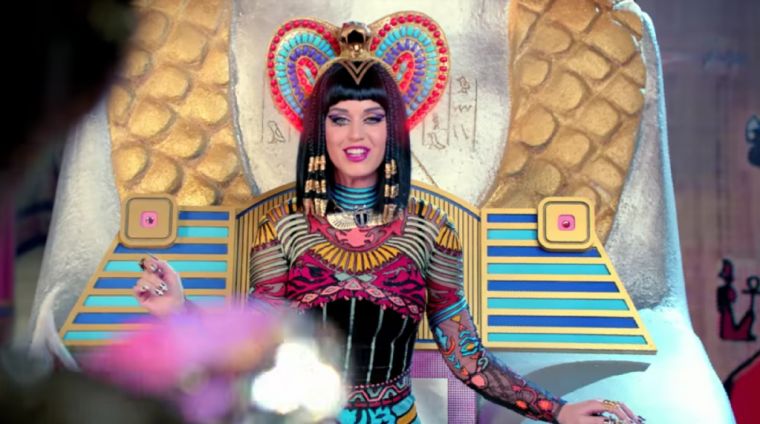Katy Perry files appeal against Christian rap song verdict

Katy Perry has filed an appeal after a court ruled against her earlier this year in a copyright infringement case brought by a Christian rapper.
A judge ordered Perry to pay $550,000 (around £427,000) from the money she made off "Dark Horse" to Christian rapper Flame, real name Marcus Gray, after his claim of copyright infringement was upheld.
The rest of the $2.78m damages awarded to Flame was to be paid by Capitol Records and other co-collaborators in the song, including Dr Luke and Juicy J.
In the appeal documents filed with the court in California, Perry and her team are for the original verdict to be overturned or to be granted a re-trial.
"The legally unsupportable jury verdicts in this music copyright infringement case that are widely recognized within the music industry — and beyond — as a grave miscarriage of justice," the appeal reads, according to Variety.
"The erroneous verdicts in this case and the precedent established thereby present serious harm to music creators and to the music industry as a whole."
Gray launched his legal challenge against Perry over "Dark Horse" in 2014, claiming that the beat had been copied from his 2009 song "Joyful Noise" without his permission.
"Defendants never sought or obtained permission from plaintiffs to use the 'Joyful Noise' song in creating, reproducing, recording, distributing, selling, or publicly performing defendants' song," the complaint read.
"Plaintiffs never gave any of the defendants permission, consent, or a license to use 'Joyful Noise' for any purpose, including creation of a derivative work based on 'Joyful Noise'."
"Joyful Noise" appeared in Flame's gospel album, "Our World: Redeemed", which was nominated for a Grammy.
During the trial in July, Perry appeared in court to give evidence and claimed that she had never heard of the song "Joyful Noise" nor Flame before recording "Dark Horse".
The appeal document repeats this claim.
"No reasonable factfinder could have concluded that 'Joyful Noise' was so well-known that it could be reasonably inferred that Defendants heard it, particularly in this digital age of content overload, with billions of videos and songs available to users with trillions of streams," it reads.
"The few million views of 'Joyful Noise' on the Internet presented by Plaintiffs, over a period of five years, equals an undisputed 'drop in the bucket' in modern-day view count statistics — and can hardly constitute widespread dissemination.
"Plaintiffs adduced no evidence of any sales and no documentary evidence of any radio or television play, or of actual performances of 'Joyful Noise.'
"Plaintiffs had no proof that any of the 'Dark Horse' writers searched for Christian rap on YouTube or Myspace, as was Plaintiffs' burden."











